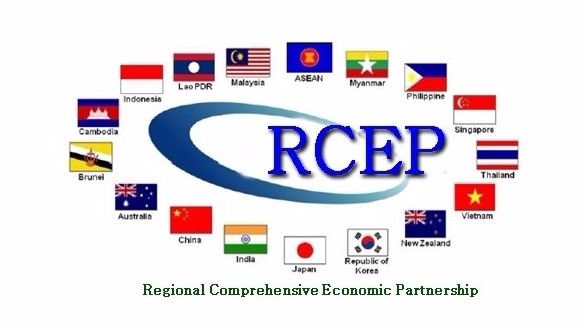
Domestic businesses should equip themselves with necessary knowledge in order to tap opportunities from the Regional Comprehensive Economic Partnership (RCEP), advised experts.
The RCEP, which was signed during the 37th ASEAN Summit in Mid-November, involves 10 members of the Association of Southeast Asian Nations (ASEAN) as well as the Republic of Korea (RoK), China, Japan, Australia and New Zealand. It is the biggest-ever trade agreement in the world with combined GDP of member economies accounting for 30.2% of global GDP, equivalent to about US$32 trillion, and a market comprising of 47.5% of the world population.
According to Nguyen Thi Thu Trang, a representative from the Vietnam Chamber of Commerce and Industry (VCCI), Vietnam is one of the countries that benefit the most from the deal as the country has many products meeting the demand of the majority of signatories of the agreement.
The RCEP will help form a stable and long-term export market for ASEAN member countries amid the recent instable supply chains, while creating a fair playground in the region via a binding legal framework on policies on trade, investment, intellectual property and e-commerce, she said.
Thanks to the harmonisation of origin regulations within the RCEP, Vietnam’s export products can meet all conditions to enjoy preferential tax rates, thus increasing the country’s exports to regional markets, especially Japan, the RoK, Australia and New Zealand, said Trang.
Meanwhile, Vu Duc Giang, Chairman of the Vietnam Textile and Apparel Association said that the RCEP is hoped to bring about numerous benefits for garment and textile sector with the opening of a giant 2-billion-strong market. It will help domestic firms overcome challenges in materials supply, he added.
However, according to Giang, it is necessary to design solutions and development strategy for the 2030-2040 period, which should identify key areas and products for development. He added that more investment in industrial parks or water treatment plants meeting environmental protection standards is needed to meet standards set by the RCEP.
At the same time, lawyer Tran Van Tien from Dong Doi law agent said that together with other trade deals, the RCEP will continue helping promote Vietnam’s reform efforts along more progressive and positive directions.
Therefore, the investment and business environment in the country will rapidly be completed, motivating socio-economic development and enhancing the competitiveness of local enterprises, especially small and medium-sized firms, he said.
He pointed out that along with the deeper integration into the world economy, Vietnamese firms are facing more international legal disputes with foreign rivals, while their legal awareness has remained modest.
Tien advised domestic companies to equip themselves with knowledge about international legal regulations to minimise risks and latent challenges during the signing and implementation of contracts with foreign partners.
VOV.VN - Two-way trade turnover between the country and 14 nations involved in the Regional Comprehensive Economic Partnership (RCEP) agreement hit US$240 billion during the opening 10 months of this year, accounting for 54.6% of total Vietnamese import-export turnover.
Bình luận
Bình luận của bạn sẽ được xét duyệt trước khi đăng